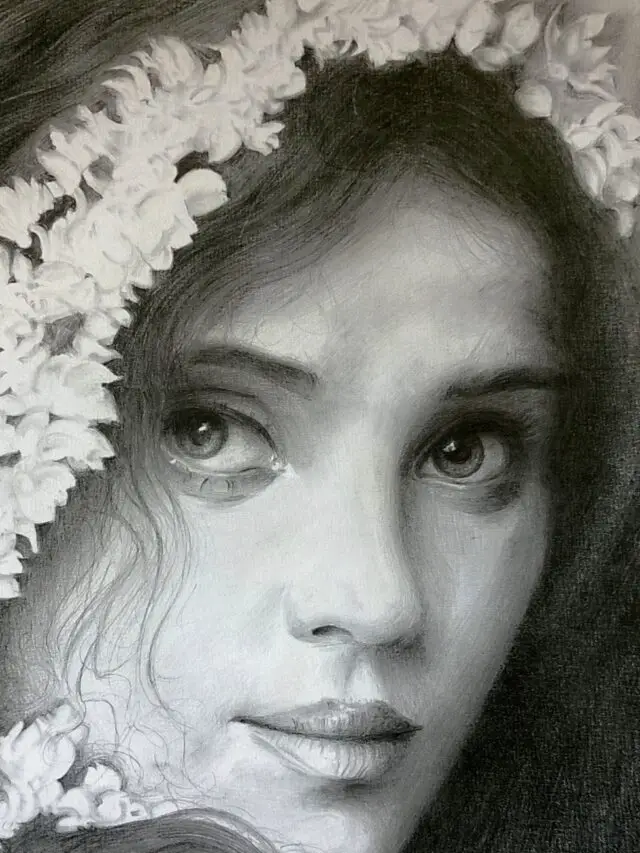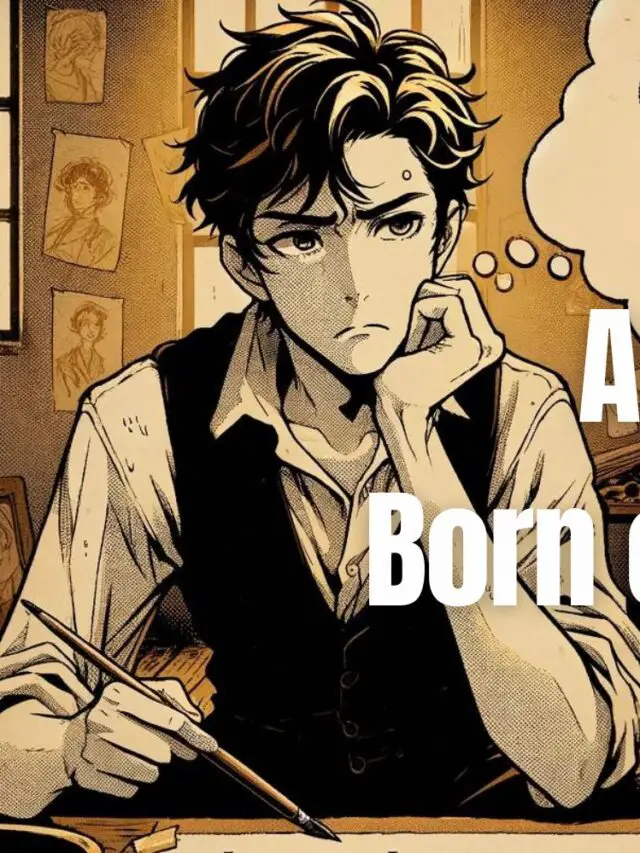A Vanishing point refers to the Point at which parallel lines appear to converge as they recede into the distance. It is a point beyond which an existing vision (human eye or camera) cannot see. They are also called convergence points or Points of convergence.
A Vanishing point is an essential concept in perspective drawing, and artists use it to create depth and realism in their pictures.
It is a crucial element to consider when creating their work, but it’s also interesting from a scientific standpoint.
Many questions surrounding this phenomenon have yet to be answered by science and mathematicians alike.
If you want to learn more about this concept, read on! We have answers for everything from” “what is it” to” “can there be two vanishing points.”
Table of Contents
What is the Definition of a Vanishing Point?
The vanishing point in art refers to a specific point on the horizon line where parallel lines appear to converge. This concept is essential for creating realistic depth and perspective in two-dimensional artwork, particularly in linear perspective.
The essential items to be noted here are
- Horizon Line is the maximum distance eyesight can see and appears straight.
- Convergence Points – A vanishing point on the horizon line where the parallel lines in the drawing converge.
- Location on the Horizon Line – The Convergence Point can be anywhere on the horizon line, and all lines appear to move towards that Point.
- Appears to Converge – All the geometric and organic shapes appear to reduce in size linearly, or we can say they appear to convert towards the Point of convergence.
- The illusion of Depth – Even though the Artwork is on a flat surface, the Artwork will appear to have depth using the linear perspective rules.

What is Vanishing Point in Art?
A Vanishing point is a point on the horizon line where the straight lines in the drawing converge.
In drawing and painting vanishing point is a key element to getting a realistic scene of an object, and it can turn a good picture into a very realistic one.
An artist uses these points of convergence to create perspective and an illusion of depth on flat surfaces. They also use them to convey their images on two-dimensional surfaces like paper or canvas.
If you want to create a convincing illusion of depth on flat surfaces, use the convergence point. You can also use this effect with two-dimensional or three-dimensional objects if you correctly set them, depending on which convergence point we’re discussing here!
You can also call these points a Point of Convergence.
Who invented Vanishing Point?
Italian architect Filippo Brunelleschi invented the vanishing Point during a period known as the Renaissance. The Vanishing Point is an idea that has been around for about 600 years, but it wasn’t until the 19th century and was used extensively in art to help convey perspective in drawing.
His theory on Linear Perspective is that all parallel lines converge to a single point far away.
How Does Perspective Affect the Vanishing Point?
Linear Perspective is one of the fundamental concepts used to create a realistic drawing. It helps an artist draw objects seen from a distance, which appear smaller as the distance grows.
There are convergence points on the Horizon Line where all parallel lines converge towards that Point.
Depending on how many points the artist wants to use in their work, there can be multiple vanishing points.
There can be vanishing points on both sides of the Horizon Line, and there will be infinite points if you draw a vertical line from where all straight lines converge.
One more type of perspective is called atmospheric perspective, which does not have any relationship with linearity but is purely related to light and atmosphere and does not affect the vanishing Point.
How do Artists create Vanishing points?
An artist creates a vanishing point by drawing a single dot on the horizon line at the vanishing point location.
The Vanishing Point can be anywhere on the horizon line, and all parallel lines appear to move towards that Point.
When you draw an object on a flat surface, the Point of convergence will change depending on how close or far away the viewer is. The Vanishing Point may not be visible for near objects as it is too close for vanishing. In such cases, you can add multiple vanishing points if necessary for your artwork.
To create convergence points, draw a reference point on the horizon line and draw the objects in perspective view.
It is vital to place convergence points in the right location to affect the object’s placement.
Is Vanishing Point Real?
The Vanishing Point is real at the place where an artist or a photographer sees the view. Using the linear perspective technique, an artist draws objects on a flat surface to give depth to the artwork.
It is seen only in two-dimensional artworks. The Vanishing Point is a location on the horizon line where all parallel lines appear to converge to create an illusion of depth.
Can there be two vanishing points?
Two vanishing points are possible when working with three-dimensional objects or scenes on paper.
When working on a three-dimensional object, you create the points of convergence on either side, like left and right or top and bottom. The object will generally be in the center.
Why is it important to set the vanishing Point on the horizon line?
The Vanishing Point is a reference for all the straight lines that appear to converge at that Point.
When you see a distance of land or water, they meet the sky, which appears to be in a straight line.
The object appears smaller when you place it further, and its appearance in size works linearly. And finally, on the horizon line, they disappear.
So the vanishing Point should be set only on the horizon line as mathematically, scientifically, or logically it is where every object vanishes.
Visualizing convergence points and drawing them at the right place makes your artwork look more realistic.
If you fail to set a vanishing point, your art will look like a flat photograph, losing all depth.
How to Find a vanishing point in Art?
Most artists use vanishing points when drawing the landscape. If you learn to find them, your paintings will look more realistic, especially distance appearance.

Let us take a picture as shown above.
First, you must find the Horizon line where the sky meets the water or the tube.
Next, you can see that all constructions point towards one Point, and you cannot see anything beyond that Point.
Now draw parallel lines of the fence on the right side of the bottom part of the fence. Similarly, the buildings all converge to a point on the left side of the image. Draw parallel lines to that single Point.
Ensure they all meet at the horizon line.
The point where all the lines meet is the Vanishing Point or the Point of convergence.
This picture is simple, straightforward, and easy to identify, but you may get a complex drawing or an actual artwork.
You may adopt the same methodology.
A word of caution, you may find more than one horizon line and not get baffled.
Conclusion
The Vanishing Point is the spot in an image where all parallel lines converge.
An Artist often uses it to create depth and perspective on a two-dimensional surface, but you can also find it anywhere you draw or paint.
Points of Convergence are vital because they help us determine how big objects are relative to other things. Without them, we would only see flat images that give no sense of scale or distance.
Next time you see an artwork, find the vanishing Point and enjoy studying how the artist has created depth in his painting.
Happy drawing!
Frequently Asked Questions
-
Why is it called a Vanishing Point?
The Vanishing Point is called a vanishing point because it is the spot in an image where all parallel lines converge. All objects in a painting will eventually converge at the vanishing Point. The Vanishing Point is also known as the Point of Convergence.
-
What causes Vanishing Point?
The Vanishing Point is caused by the way our eyes see objects. Our eyes see things in a three-dimensional world and flatten them into a two-dimensional image. The Vanishing Point is where all of the parallel lines in an image converge.
-
When is a Vanishing Point necessary in a Painting?
The Vanishing Point is the spot in an image where all of the parallel lines converge. You can find the vanishing point anywhere you draw or paint. The Vanishing Point is only necessary for an artist to create depth and perspective in a two-dimensional painting.
-
Where should the Vanishing Point be?
You should place the Vanishing Point on the horizon line. This is the line where the sky meets the water or land. The Vanishing Point should be placed only on the horizon line as mathematically, scientifically, or logically it is where every object vanishes.
-
What is the most important thing to remember about Vanishing Points?
The most important thing to remember about vanishing points is that they help us determine how big objects are relative to other objects. Vanishing points are essential because they allow us to see depth and perspective in a painting. Without vanishing points, we would only see flat images that give no sense of scale or distance.





Comments are closed.